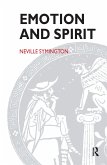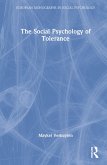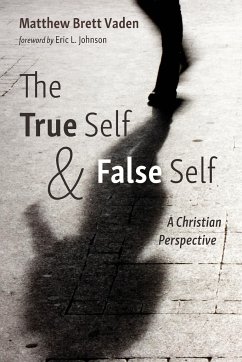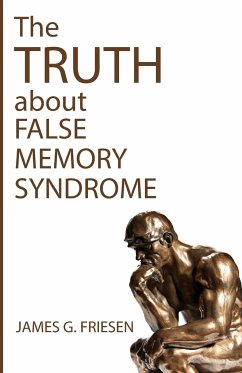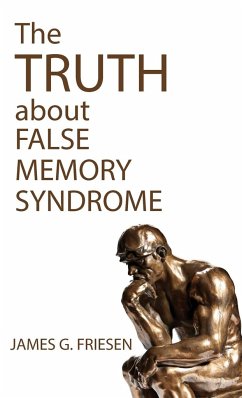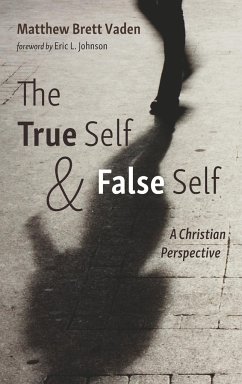The Psychology of False Beliefs
Collective Delusions and Conspiracy Theories
Herausgeber: Forgas, Joseph P.
The Psychology of False Beliefs
Collective Delusions and Conspiracy Theories
Herausgeber: Forgas, Joseph P.
- Gebundenes Buch
- Merkliste
- Auf die Merkliste
- Bewerten Bewerten
- Teilen
- Produkt teilen
- Produkterinnerung
- Produkterinnerung
This insightful book outlines the social psychology of false beliefs, examining the common human tendency to create and maintain collectively shared belief systems that are not supported by evidence.
Andere Kunden interessierten sich auch für
![Emotion and Spirit Emotion and Spirit]() Neville SymingtonEmotion and Spirit156,99 €
Neville SymingtonEmotion and Spirit156,99 €![The Social Psychology of Tolerance The Social Psychology of Tolerance]() Maykel VerkuytenThe Social Psychology of Tolerance149,99 €
Maykel VerkuytenThe Social Psychology of Tolerance149,99 €![The True Self and False Self The True Self and False Self]() Matthew Brett VadenThe True Self and False Self29,99 €
Matthew Brett VadenThe True Self and False Self29,99 €![The Truth about False Memory Syndrome The Truth about False Memory Syndrome]() James G. FriesenThe Truth about False Memory Syndrome20,99 €
James G. FriesenThe Truth about False Memory Syndrome20,99 €![The Truth about False Memory Syndrome The Truth about False Memory Syndrome]() James G. FriesenThe Truth about False Memory Syndrome37,99 €
James G. FriesenThe Truth about False Memory Syndrome37,99 €![The True Self and False Self The True Self and False Self]() Matthew Brett VadenThe True Self and False Self41,99 €
Matthew Brett VadenThe True Self and False Self41,99 €![Implausible Beliefs Implausible Beliefs]() Allan MazurImplausible Beliefs169,99 €
Allan MazurImplausible Beliefs169,99 €-
-
-
This insightful book outlines the social psychology of false beliefs, examining the common human tendency to create and maintain collectively shared belief systems that are not supported by evidence.
Produktdetails
- Produktdetails
- Verlag: Routledge
- Seitenzahl: 346
- Erscheinungstermin: 30. April 2025
- Englisch
- Abmessung: 240mm x 161mm x 23mm
- Gewicht: 684g
- ISBN-13: 9781032834139
- ISBN-10: 1032834137
- Artikelnr.: 72104219
- Herstellerkennzeichnung
- Libri GmbH
- Europaallee 1
- 36244 Bad Hersfeld
- gpsr@libri.de
- Verlag: Routledge
- Seitenzahl: 346
- Erscheinungstermin: 30. April 2025
- Englisch
- Abmessung: 240mm x 161mm x 23mm
- Gewicht: 684g
- ISBN-13: 9781032834139
- ISBN-10: 1032834137
- Artikelnr.: 72104219
- Herstellerkennzeichnung
- Libri GmbH
- Europaallee 1
- 36244 Bad Hersfeld
- gpsr@libri.de
Joseph P. Forgas is Scientia Professor of Psychology at the University of New South Wales, Australia. He received his D.Phil. and D.Sc. from the University of Oxford and his research focuses on affective influences on social cognition and behaviour. He published over 30 books and 300 papers and for his work he received the Order of Australia, the Distinguished Scientific Contribution Award, the Alexander von Humboldt Research Prize and a Rockefeller Fellowship as well as a number of academic fellowships and honours.
Part 1. The Nature and Origins of False Beliefs Chapter 1. Forgas
Joseph P. (University of New South Wales
Sydney). From false beliefs to collective delusions: The psychology of human credulity. Chapter 2. Goel
Vinod (York University) False beliefs and the tethered mind Chapter 3. Cooper
Joel & Packman
James (Princeton University) The care and feeding off false beliefs: A cognitive dissonance analysis Chapter 4. Albarracin
Dolores & Javier Granados Samayoa (University of Pennsylvania) Beyond Confrontation: Bypassing and Motivational Interventions to Curb the Impact of False Beliefs Chapter 5. Crano
William D. (Claremont College) The Birth
Development
and Transformation of False Beliefs. Chapter 6. Krueger
Joachim (Brown university) and Gruening
David J. (University of Heidelberg) The false belief in free will. Chapter 7. Dunbar
Robin (University of Oxford) Religion and the susceptibility to false belief Chapter 8. French
Chris (Goldsmith's
London). The psychology of paranormal beliefs Chapter 9. Sutton
Robbie
Hopkins-Doyle
Aife
Petterson
Aino
Zibell
Hannah
Chalmers
Jocelyn and Leach
Stefan (University of Kent) The false and widespread belief that feminists are misandrists. Chapter 10. Jussim
Lee
Yanovsky
Sonia
Honeycutt
Nathan and Finkelstein
Danit (Rutgers University) Academic misinformation and false beliefs. Chapter 11. Forgas
Joseph P. (University of New South Wales) Tribal delusions in academia: Three elephants carried by a turtle Chapter 12. Fiedler
K. (University of Heidelberg) On the illusion of correct beliefs and the suspicion that correct beliefs may not exist Chapter 13. Dunning
Dave (University of Michigan) False beliefs among experts and the cognitively able Part 4. False beliefs and conspiracy theories Chapter 14. van Prooijen
Jan-Willem (Vrije Universiteit Amsterdam) Pandemic conspiracy theories: Implications for health and polarisation Chapter 15. Stanovich
Keith (University of Toronto) and Toplak
Maggie (York University) Reconceptualising the rationality of conspirational thinking Chapter 16. Douglas
Karen
Ricky Green
Daniel Toribio-Flórez
Lea Kamitz
Cassidy Rowden
Mikey Biddlestone
and Dylan De Gourville (University of Kent) Conspiracy beliefs and interpersonal relationships Chapter 17. Ritov
Ilana & Bruck
Amy (Hebrew University of Jerusalem) False beliefs about an antagonistic group
Joseph P. (University of New South Wales
Sydney). From false beliefs to collective delusions: The psychology of human credulity. Chapter 2. Goel
Vinod (York University) False beliefs and the tethered mind Chapter 3. Cooper
Joel & Packman
James (Princeton University) The care and feeding off false beliefs: A cognitive dissonance analysis Chapter 4. Albarracin
Dolores & Javier Granados Samayoa (University of Pennsylvania) Beyond Confrontation: Bypassing and Motivational Interventions to Curb the Impact of False Beliefs Chapter 5. Crano
William D. (Claremont College) The Birth
Development
and Transformation of False Beliefs. Chapter 6. Krueger
Joachim (Brown university) and Gruening
David J. (University of Heidelberg) The false belief in free will. Chapter 7. Dunbar
Robin (University of Oxford) Religion and the susceptibility to false belief Chapter 8. French
Chris (Goldsmith's
London). The psychology of paranormal beliefs Chapter 9. Sutton
Robbie
Hopkins-Doyle
Aife
Petterson
Aino
Zibell
Hannah
Chalmers
Jocelyn and Leach
Stefan (University of Kent) The false and widespread belief that feminists are misandrists. Chapter 10. Jussim
Lee
Yanovsky
Sonia
Honeycutt
Nathan and Finkelstein
Danit (Rutgers University) Academic misinformation and false beliefs. Chapter 11. Forgas
Joseph P. (University of New South Wales) Tribal delusions in academia: Three elephants carried by a turtle Chapter 12. Fiedler
K. (University of Heidelberg) On the illusion of correct beliefs and the suspicion that correct beliefs may not exist Chapter 13. Dunning
Dave (University of Michigan) False beliefs among experts and the cognitively able Part 4. False beliefs and conspiracy theories Chapter 14. van Prooijen
Jan-Willem (Vrije Universiteit Amsterdam) Pandemic conspiracy theories: Implications for health and polarisation Chapter 15. Stanovich
Keith (University of Toronto) and Toplak
Maggie (York University) Reconceptualising the rationality of conspirational thinking Chapter 16. Douglas
Karen
Ricky Green
Daniel Toribio-Flórez
Lea Kamitz
Cassidy Rowden
Mikey Biddlestone
and Dylan De Gourville (University of Kent) Conspiracy beliefs and interpersonal relationships Chapter 17. Ritov
Ilana & Bruck
Amy (Hebrew University of Jerusalem) False beliefs about an antagonistic group
Part 1. The Nature and Origins of False Beliefs Chapter 1. Forgas
Joseph P. (University of New South Wales
Sydney). From false beliefs to collective delusions: The psychology of human credulity. Chapter 2. Goel
Vinod (York University) False beliefs and the tethered mind Chapter 3. Cooper
Joel & Packman
James (Princeton University) The care and feeding off false beliefs: A cognitive dissonance analysis Chapter 4. Albarracin
Dolores & Javier Granados Samayoa (University of Pennsylvania) Beyond Confrontation: Bypassing and Motivational Interventions to Curb the Impact of False Beliefs Chapter 5. Crano
William D. (Claremont College) The Birth
Development
and Transformation of False Beliefs. Chapter 6. Krueger
Joachim (Brown university) and Gruening
David J. (University of Heidelberg) The false belief in free will. Chapter 7. Dunbar
Robin (University of Oxford) Religion and the susceptibility to false belief Chapter 8. French
Chris (Goldsmith's
London). The psychology of paranormal beliefs Chapter 9. Sutton
Robbie
Hopkins-Doyle
Aife
Petterson
Aino
Zibell
Hannah
Chalmers
Jocelyn and Leach
Stefan (University of Kent) The false and widespread belief that feminists are misandrists. Chapter 10. Jussim
Lee
Yanovsky
Sonia
Honeycutt
Nathan and Finkelstein
Danit (Rutgers University) Academic misinformation and false beliefs. Chapter 11. Forgas
Joseph P. (University of New South Wales) Tribal delusions in academia: Three elephants carried by a turtle Chapter 12. Fiedler
K. (University of Heidelberg) On the illusion of correct beliefs and the suspicion that correct beliefs may not exist Chapter 13. Dunning
Dave (University of Michigan) False beliefs among experts and the cognitively able Part 4. False beliefs and conspiracy theories Chapter 14. van Prooijen
Jan-Willem (Vrije Universiteit Amsterdam) Pandemic conspiracy theories: Implications for health and polarisation Chapter 15. Stanovich
Keith (University of Toronto) and Toplak
Maggie (York University) Reconceptualising the rationality of conspirational thinking Chapter 16. Douglas
Karen
Ricky Green
Daniel Toribio-Flórez
Lea Kamitz
Cassidy Rowden
Mikey Biddlestone
and Dylan De Gourville (University of Kent) Conspiracy beliefs and interpersonal relationships Chapter 17. Ritov
Ilana & Bruck
Amy (Hebrew University of Jerusalem) False beliefs about an antagonistic group
Joseph P. (University of New South Wales
Sydney). From false beliefs to collective delusions: The psychology of human credulity. Chapter 2. Goel
Vinod (York University) False beliefs and the tethered mind Chapter 3. Cooper
Joel & Packman
James (Princeton University) The care and feeding off false beliefs: A cognitive dissonance analysis Chapter 4. Albarracin
Dolores & Javier Granados Samayoa (University of Pennsylvania) Beyond Confrontation: Bypassing and Motivational Interventions to Curb the Impact of False Beliefs Chapter 5. Crano
William D. (Claremont College) The Birth
Development
and Transformation of False Beliefs. Chapter 6. Krueger
Joachim (Brown university) and Gruening
David J. (University of Heidelberg) The false belief in free will. Chapter 7. Dunbar
Robin (University of Oxford) Religion and the susceptibility to false belief Chapter 8. French
Chris (Goldsmith's
London). The psychology of paranormal beliefs Chapter 9. Sutton
Robbie
Hopkins-Doyle
Aife
Petterson
Aino
Zibell
Hannah
Chalmers
Jocelyn and Leach
Stefan (University of Kent) The false and widespread belief that feminists are misandrists. Chapter 10. Jussim
Lee
Yanovsky
Sonia
Honeycutt
Nathan and Finkelstein
Danit (Rutgers University) Academic misinformation and false beliefs. Chapter 11. Forgas
Joseph P. (University of New South Wales) Tribal delusions in academia: Three elephants carried by a turtle Chapter 12. Fiedler
K. (University of Heidelberg) On the illusion of correct beliefs and the suspicion that correct beliefs may not exist Chapter 13. Dunning
Dave (University of Michigan) False beliefs among experts and the cognitively able Part 4. False beliefs and conspiracy theories Chapter 14. van Prooijen
Jan-Willem (Vrije Universiteit Amsterdam) Pandemic conspiracy theories: Implications for health and polarisation Chapter 15. Stanovich
Keith (University of Toronto) and Toplak
Maggie (York University) Reconceptualising the rationality of conspirational thinking Chapter 16. Douglas
Karen
Ricky Green
Daniel Toribio-Flórez
Lea Kamitz
Cassidy Rowden
Mikey Biddlestone
and Dylan De Gourville (University of Kent) Conspiracy beliefs and interpersonal relationships Chapter 17. Ritov
Ilana & Bruck
Amy (Hebrew University of Jerusalem) False beliefs about an antagonistic group


